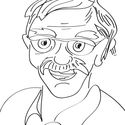-
About
- About Listly
- Community & Support
- Howto
- Chrome Extension
- Bookmarklet
- WordPress Plugin
- Listly Premium
- Privacy
- Terms
- DMCA Copyright
- © 2010-2025 Boomy Labs


 Jeff Nevil
Jeff Nevil
Listly by Jeff Nevil
As the uncertainty of Brexit continues the housing market in the UK is facing some turbulent times and house prices in the capital of London in particular have seen larger than expected decreases in value. Whilst the influence of Brexit on our economy is very much out of our control, there are some factors closer to home that could influence how quickly your house sells and at what price.

Neighbours can either be a blessing or a curse. Anti-social neighbours, disputes with neighbours, neighbours with vicious dogs, and neighbours who do not take care of the outside of their property are examples of ‘private proximate nuisance’ which can adversely affect the appeal, and hence value, of your property. We’ve all heard of the halo effect and it’s not just your immediate neighbours whose properties and presence may influence your own property value. With this in mind, addressing such issues where possible before you market your property is a sensible idea and there are some useful guidelines available to help with such issues.

Looking even closer to home, how you’ve chosen to decorate your home can hugely influence the impression you give to potential buyers. Research shows that symbols of a strong presence and personality in a house – for example strong prints, colours and clutter - can work both positively and negatively with house viewers. If you’re struggling to foster any interest in your property, baking bread and brewing coffee isn’t working (yes research indicates these genuinely create a good impression!) and your taste is a bit more adventurous, you may want to think about neutralising and decluttering your home, especially the communal spaces. This allows viewers to envisage more easily how they might make your home their own. A little monetary and time investment could significantly increase the marketability and sale price of your property.

With homeowners increasingly favouring creating more space in existing properties over up-scaling to a larger house, loft extensions are becoming ever more popular. A loft conversion can add up to 20% on to the value of a property, but if you don’t want to go through the bother and inconvenience of building a loft extension, it could be worth simply obtaining the necessary planning permissions for it. Having permission secured can itself increase the value of your house beyond the cost of obtaining that approval in the first place.

A well-maintained garden can increase the value of your home by up to 20%. With house prices in the UK currently averaging £226k this is a significant £45k! If you’ve not given your garden much attention, you may also find some unwelcome visitors. Of all the problematic plants such as Buddleia, Rhododendron or Virginia Creeper, probably the most important to deal with is Japanese Knotweed. This highly present and invasive species is now widespread throughout the UK and has been in the news a lot recently. Due to potential damage and the nuisance it causes, the presence of Japanese Knotweed can significantly devalue your property by blighting it. Furthermore, if it’s allowed to grow onto a neighbouring property then there are potential legal repercussions that can follow. For these reasons, it’s very important that any Japanese knotweed removal is completed promptly and professionally, yielding a guarantee which you can present to any potential purchasers.

This doesn’t just concern the damage animals might cause to the furnishings, fittings and interior décor of a property or the fact that you yourself may be considered a proximate nuisance if you have a ‘lively’ dog (see earlier point about nuisance neighbours). Sensitivities to pet odours could also influence a prospective purchasers’ feelings about a property. Research shows overwhelmingly that olfactory senses influence buyer behaviour in the retail environment and there’s lots of discussion about the positive influence of certain fragrances in the house selling process too -baking bread and brewing coffee as already mentioned. Conversely, unpleasant animal smells can have a disproportionately opposite effect, ultimately causing negative impacts on the saleability of your home.
